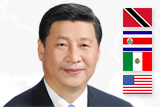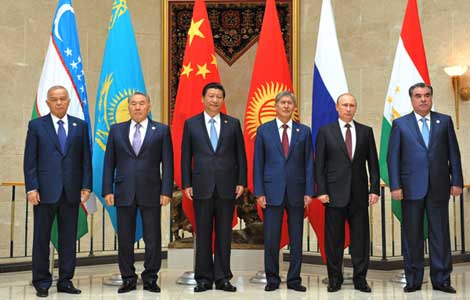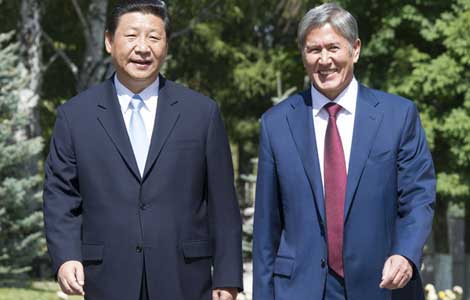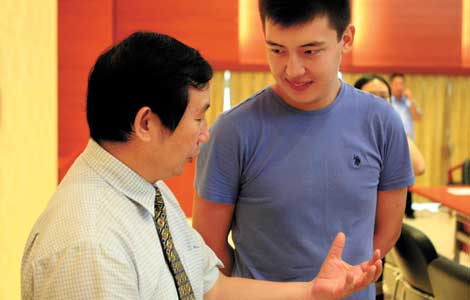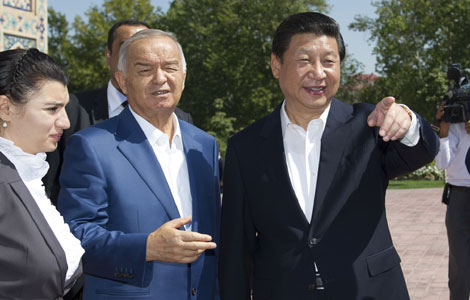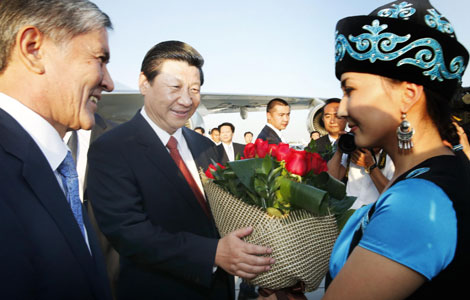Sustainable growth main task for G20 members
Updated: 2013-09-04 13:41
(Xinhua)
|
|||||||||
MOSCOW - Maintaining strong and sustainable growth is a main task for the Group of Twenty (G20) economies, Russia's G20 summit coordinator, or "sherpa," Ksenia Yudaeva has said.
Though considerable financial threats in Europe and other countries have lowered in recent years, an important task for both developed and developing countries has yet to be fulfilled, which is to return to a track of a sustainable high-pace growth, Yudaeva told Xinhua in a recent interview.
According to Yudaeva, the principal reason for the global slowdown is the lack of new sources for growth.
In the upcoming leaders' summit of the G20 in St. Petersburg, policy-makers will discuss measures to counter the sluggish growth, promote long-term development, mull policies to support consumers' demand and finance investment, said the Russian official.
Russia, which holds the G20 rotating presidency this year, outlined a strategic agenda of igniting a new cycle of economic growth through quality jobs and investment as well as effective regulation, according to Yudaeva.
She highlighted the role of investment in boosting sagging economies, as investment "is clearly the long-term and new source of growth."
Besides growth, discussions will be focused on financial markets, coordination of macro-economic policies of individual countries in financial regulations and other issues, she said.
"We also expect fruitful discussions over tax issues, automatic information exchange, action plan on tax base erosion and transferring of tax revenues to tax jurisdictions," she added.
For emerging markets, structural reforms are needed to increase economy efficiency, labor productivity and to shift workforce from less efficient to more efficient sectors, Yudaeva noted.
The sherpa also warned of possible risks of volatile currency rates in financial markets and uncertainties surrounding the U.S. Federal Reserve's plan to phase out stimulus.
As for the new formula of the International Monetary Fund (IMF) quotas, Yudaeva admitted it was the area where the least progress has been achieved.
"The new formula has some hypothetic nature because major countries, the U.S. first of all, still have not ratified the earlier reform."
It is expected that the U.S. Congress will approve the 2010 reform this fall and thus open the window for further discussion and finalize the discussion next January.
"Leaders would support the process of IMF reforms and increasing emerging countries' quotas in managing the IMF," she noted.
Meanwhile, Yudaeva highly praised China for its constructive approach and important role in policy-making within the G20 mechanism.
Russia and China create good working relations under the G20 framework, consult each other and take into account each other's positions, said the official.
"I'd like to stress that we cooperate productively. I hope that cooperation will continue," she concluded.
A G20 leaders' summit will be held in the Russian city of St. Petersburg on September 5-6.
The G20 groups Argentina, Australia, Brazil, Canada, China, France, Germany, India, Indonesia, Italy, Japan, Mexico, Russia, Saudi Arabia, South Africa, South Korea, Turkey, Britain, the United States as well as the European Union.
Related Stories
Inforgraphic: G20 in focus 2013-09-04 08:09
Obama to use G20 for Syria attack justification: lawmaker 2013-09-02 02:30
No Obama-Putin bilat at G20: official 2013-08-31 12:43
HK's financial chief to attend G20 Summit in Russia 2013-08-30 17:26
G20's role in global economy 2013-08-29 07:27
Putin sets goals for upcoming G20 summit 2013-08-29 03:00
Sino-Japanese meeting at G20 ruled out 2013-08-28 01:11
Schedule




